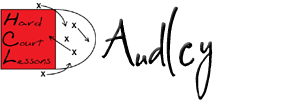 "It was awesome to be interviewed by Audley Stephenson. He was very prepared and I greatly appreciate the message he is sharing with his audience. Keep up your great work to help make the world a better place."Coach Jim Johnson
"It was awesome to be interviewed by Audley Stephenson. He was very prepared and I greatly appreciate the message he is sharing with his audience. Keep up your great work to help make the world a better place."Coach Jim JohnsonSpeaker & Author

"You're doing some great work! Fundamentally, people should tune in, listen to the ideas and most importantly implement them. Whatever I'm saying, whatever leaders you're bringing on. We need this information distributed to society so I applaud your efforts."
Gary Ryan BlairSpeaker & Author

"Thank you - it was good to be with you."
Vince Lombardi Jr.Motivational speaker and author

"What a delight to do this talk with you! We are so pleased that we were able to share these ideas with you."
Dave UlrichHR Expert and Co-Founder of The RBL Group

"You're an easy interview - I appreciate the style, you made me feel like I was with a friend in a safe place. It was delightful."
Jim Cathcart CSP, CPAE - Hall of Fame Speaker and Best Selling Author

It is a pleasure to be interviewed by someone as thoughtful and well prepared as Audley. In his own words, "Effective leadership is about having a positive effect on others." And this is what Audley does so well, bringing his audience the latest leadership ideas, insights and practices, synthesized into easily digested bytes. Bravo!
Susan Scott, Author of Fierce Conversations and Fierce Leadership

Audley is a well-prepared and well-versed interviewer. He has not only knowledge but an indelible passion for "Hard Court Lessons" and it translates in his delivery as a radio host. He is more than just a talking head as he offers useful and practical advice to his listeners. He has a knack for bringing out the best insight from his guests and doesn't shy away from offering his own insights and opinions. I enjoyed being a guest on his show and would gladly do it again anytime.
Vera JonesBusiness Motivational Speaker

Audley has a wonderful gift as a interviewer; his thoughtful questions allow those being interviewed to express themselves thoughtfully and insightfully. Thank you for inviting me on board.
John BaldoniLeadership expert, motivational speaker & author

In a turbulent world, the old models of leadership are coming up short. Audley brings a necessary fresh perspective to the vitally important issue of leadership in the 21st century. Using basketball as both an analogy and incubator for new approaches, Audley inspires and challenges us to find new ways to lead. It was a pleasure to interview with Audley – and I found the time personally inspiring.
Dr Graeme CodringtonNew World of Work and Multigenerational expert

In our unstable world, a leaders greatness is determined by the positive impacts their actions have on others. Audley understands this and successfully uses his knowledge of the game of basketball to bring home the fact that anyone of us can demonstrate effective leadership skills through our actions. It was a pleasure to interview with Audley.
Azim Jamal# 1 Amazon bestselling co-author of The
"Power of Giving"
Audley Stephenson is a leader's leader. Not only does he write, guest lecture, and radio broadcast about the topic, but he also walks the talk. His desire, vision, creativity, and knowledge base make him an influential figure in this space, More importantly, Audley is well respected by many. Look out for many more Hard Court Lessons to follow.
Peter Robert CaseyBasketball journalist & social media expert

Audley understands what it takes to develop leaders and uses some great basketball illustrations to make his points.
Mark SanbornLeadership expert & consultant

Audley possesses an intellectual curiosity, a personal sense of community commitment, and a passion about leadership. He constantly seeks new and better ways to explore, communicate, and express ideas about taking individuals and teams to more desirable outcomes.
William S. KaneGlobal HR Executive, Business Change Expert, Author, and Leadership Consultant

Sports is such a great training ground that produces so much more than wins and losses and your unique approach to the subject is perfect in a day when we all need to be inspired by real leaders.
Don YaegerMotivational speaker, bestselling author and associate editor of Sports Illustrated

Audley understands that being an effective leader is less about what you believe and more about how you behave.
Eric HarveyWalk The Talk founder and president

Our society desperately needs role models and leaders to step up and guide today's youth. Audley takes an innovative and creative approach to help our young people understand how their actions can contribute to a better future.
Tracy Murray12 year professional basketball player in
National Basketball Association




























































